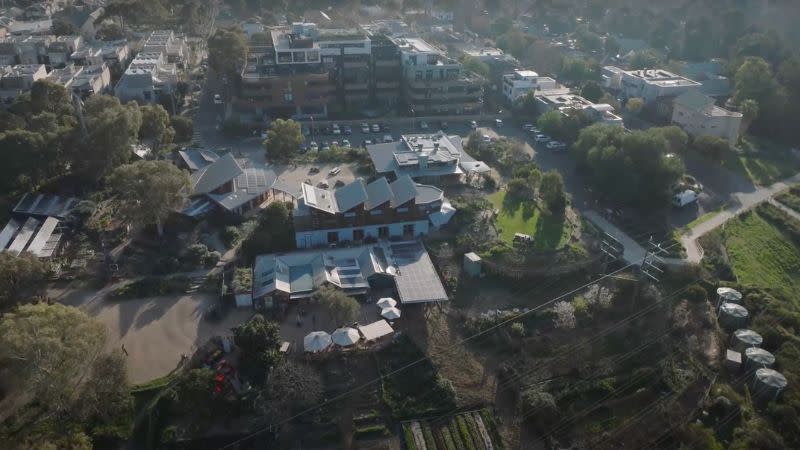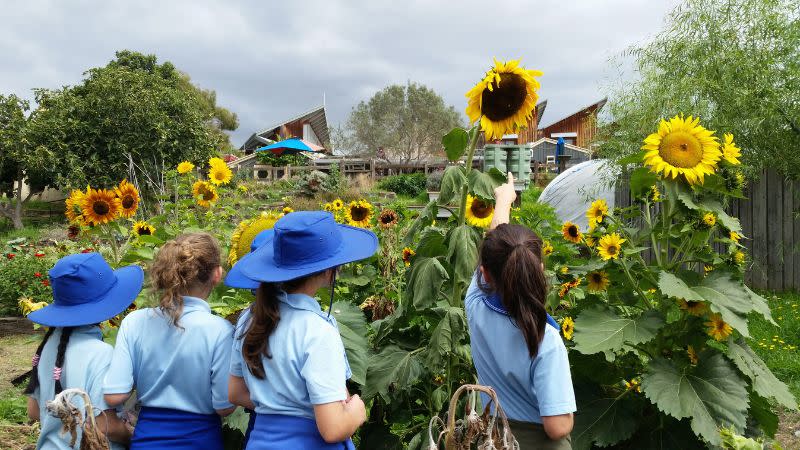[+] Brunswick Acquisition Showcases the Rise of the SPREIT

After 42 years on its Brunswick East site, social enterprise CERES was bursting at the seams.
More than 500,000 people access the 4.5ha community farm and CERES buildings for education and events each year on the site owned by the Merri-bek Council.
The not-for-profit had been eyeing a neighbouring site but the barrier to accessing finance for an acquisition of a site was well out of reach, according to CERES chief executive Cinnamon Evans.
Cranes went up on the site at 269 Steward Road for an apartment block by Lucent Capital, with retail space at the ground floor. Evans alongside social impact investment group White Box Enterprises hatched a plan to raise capital for a new headquarters for CERES.
White Box Enterprises co-invested with high-net-worth individuals to acquire three of the four ground-floor commercial spaces for $1.8 million.
White Box Enterprises chief executive Luke Terry says they are working with eight social enterprises that are focused on creating jobs in their communities.

Terry says they are working with CERES to help support its endeavours in the community and its ambitions to own its own headquarters.
White Box bridges the gap between impact investors and social enterprises to provide access to finance for property investment, which Terry says is one of the biggest barriers to social enterprise expansion.
“We’ve done a number of these where we fund the social enterprises, such as one out at Braybrook,” Terry says.
“Cinnamon said to me, do you think we could do something like this here, we saw the cranes on the site next door to CERES and hatched a plan.”
Terry said it took two years to pull together the deal with about 10 impact investors.
“The size of these investments are too small to put into a REIT. We set up a charitable trust and bring investors in on the project. It’s done in a way that everyone is able to win,” he says.
The fund is set up as a long-term lease inside the trust with a view to enabling CERES to buy back portions of the investment over time.
He says the investment provides a pathway for social enterprises to own their premises ultimately.
Impact investors are sophisticated investors who buy in to the charitable trust for a minimum of $100,000 and a five-year term.
“Much like a syndication, there are exit points for investors and we work with social enterprises to encourage them to buy back chunks, while also looking for other impact investors for the trust.”

Terry says ultimately White Box Enterprises would like to set up a social purpose real estate investment trust [SPREIT] to help support the growth of social enterprises in Australia.
The Clare Hopkins Clarke-designed Stewart Collecting was targeting a 7.5 Star NatHERS rating and CERES worked to create a low-impact fit-out for its headquarters.
Evans says, “When we took possession of the space it was a cold shell.
“Being an environmental organisation it was important to do [the fitout] in a circular way.”
Te design and procurement of materials has been an interesting process, Evans says.
The fitout features acoustic panels from the General Motors building at Fishermans Bend, durapanels of compressed straw were sourced from a school demolition, recycled carpet tiles and salvaged wood via its Fair Wood social enterprise.
The move into the new headquarters would help to unlock other infrastructure on the CERES site for more events and education.
Social Purpose REITs (SPREITs) are a relatively new phenomenon.
While there are some dedicated REITs such as the Charter Hall Social Infrastructure REIT, and the Arena REIT dedicated to developing, owning and managing education and healthcare assets, social enterprise and not-for-profits are relatively unchartered waters in Australia.
You are currently experiencing The Urban Developer Plus (TUD+), our premium membership for property professionals. Click here to learn more.















